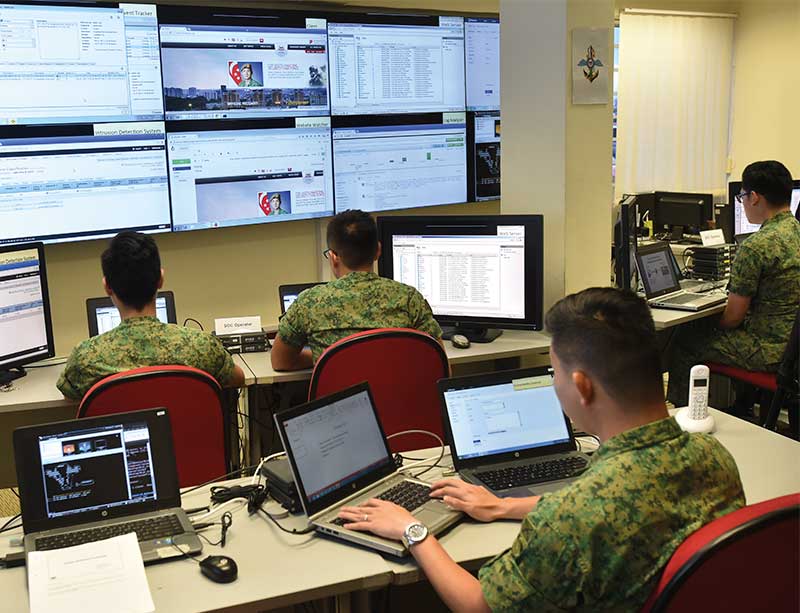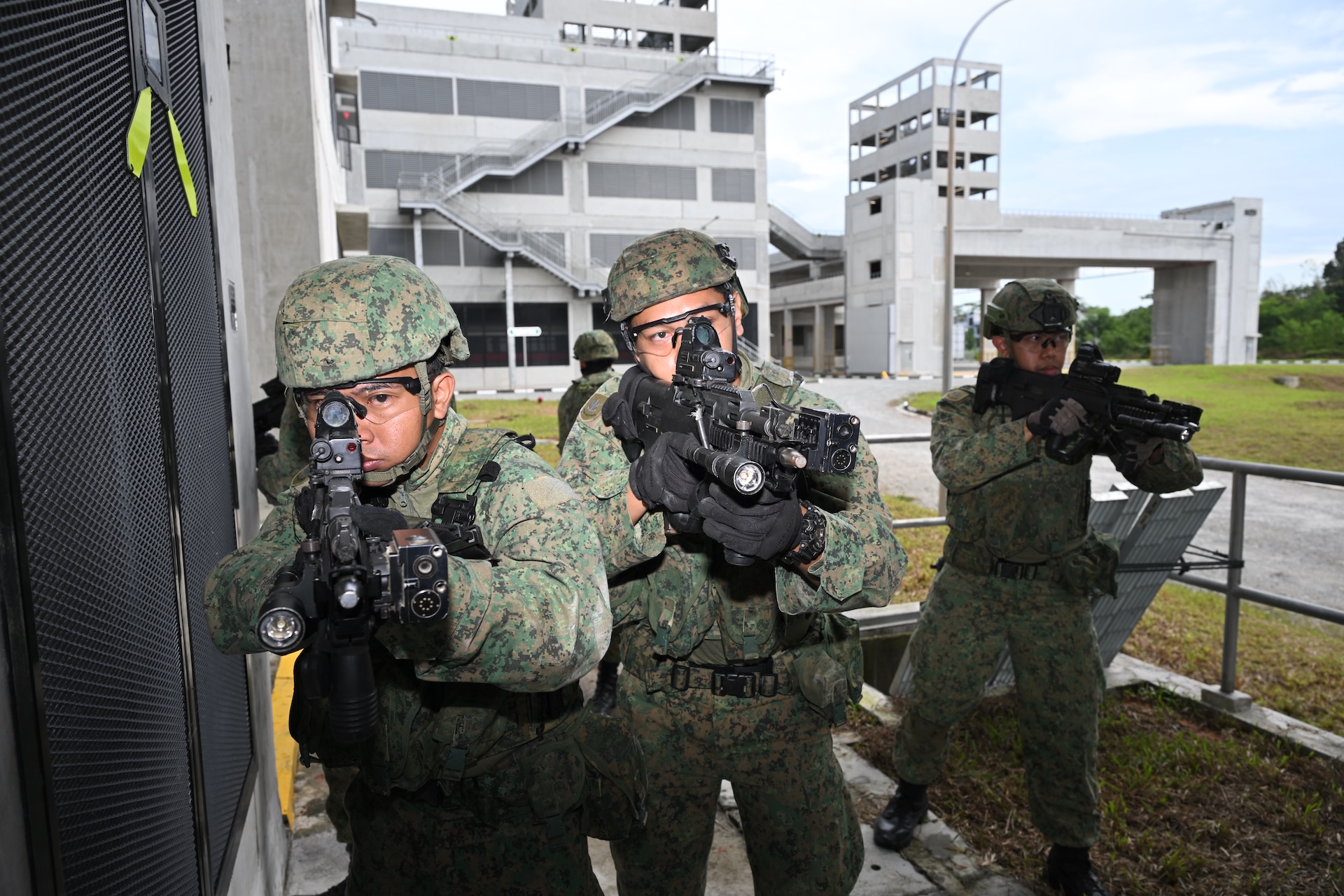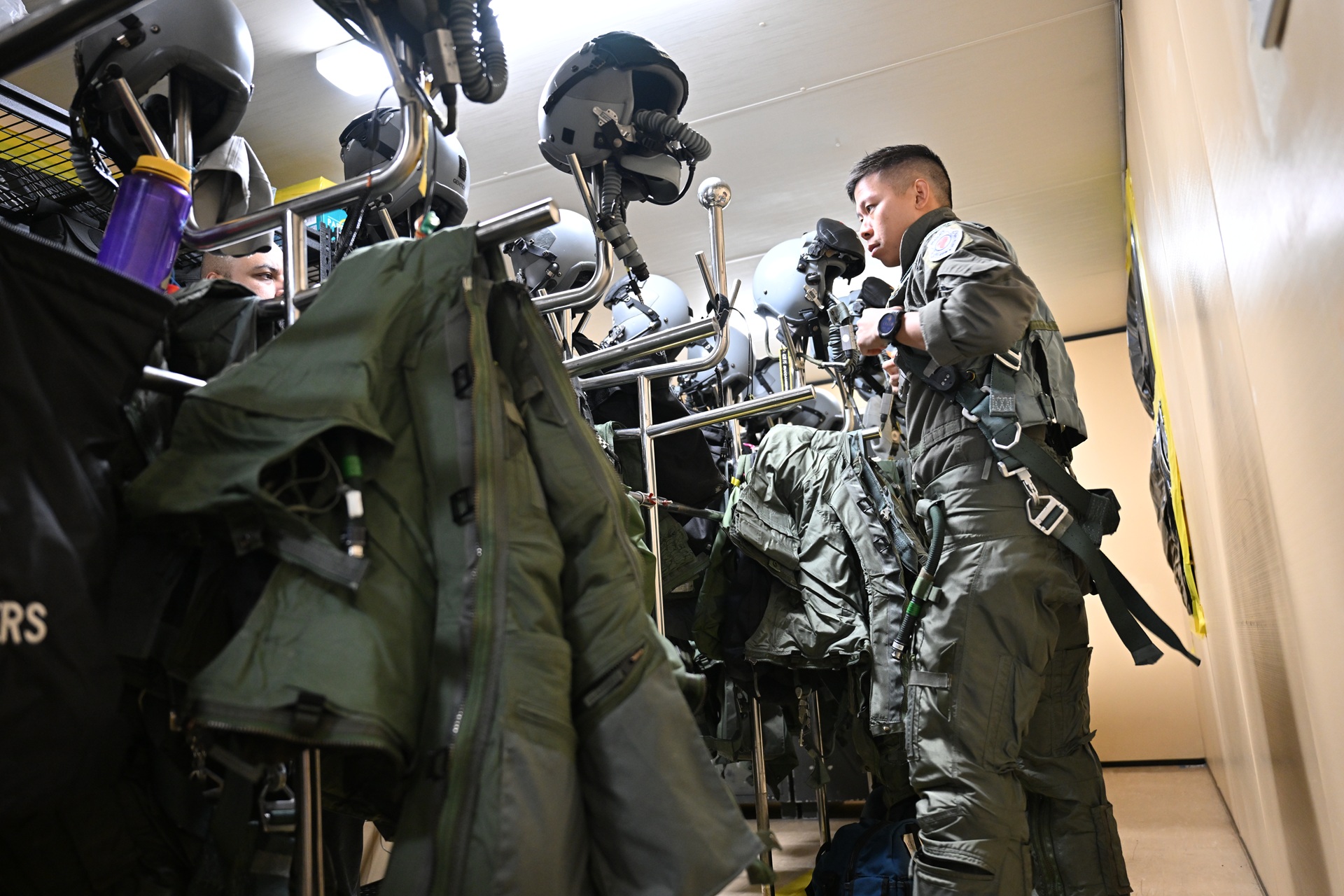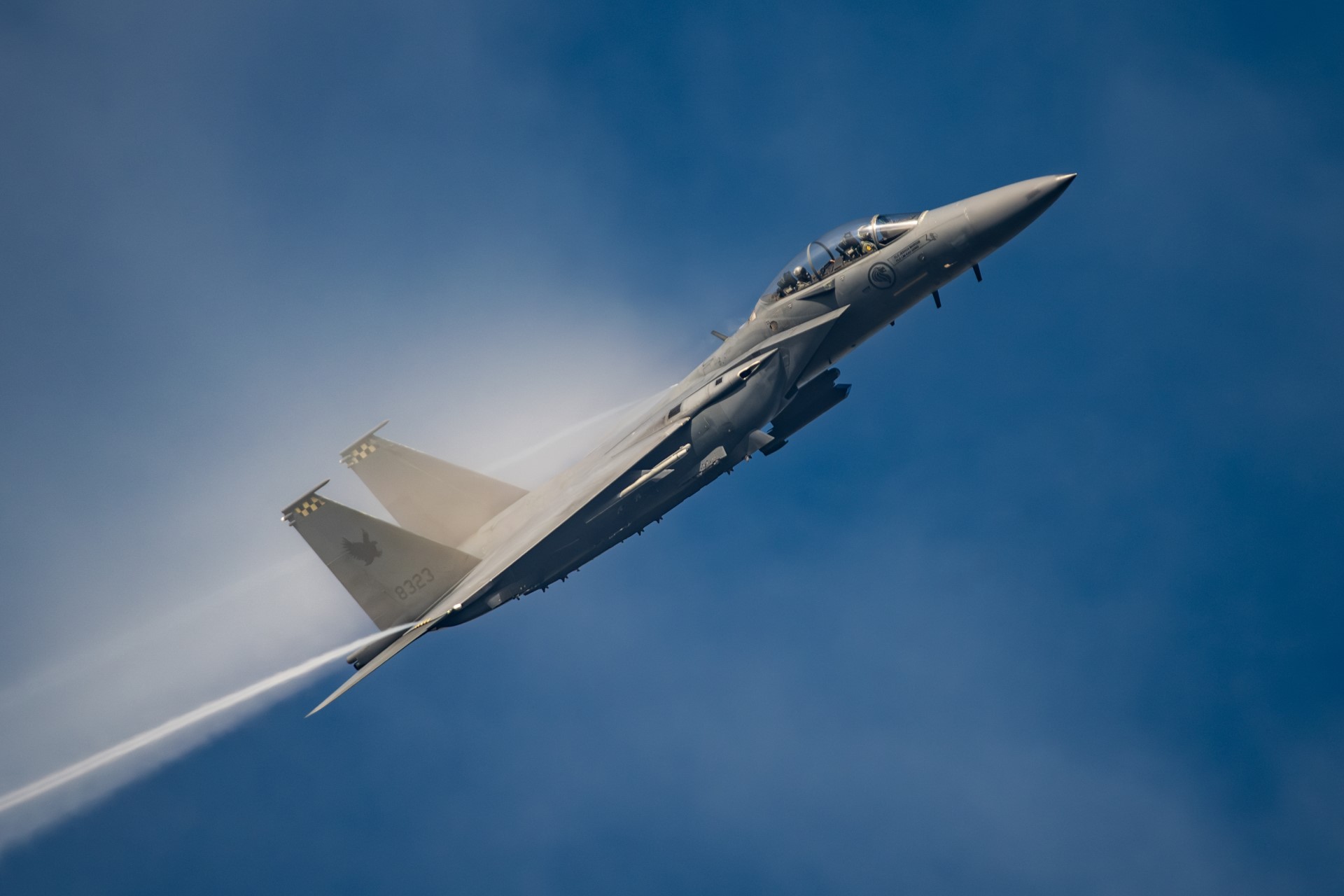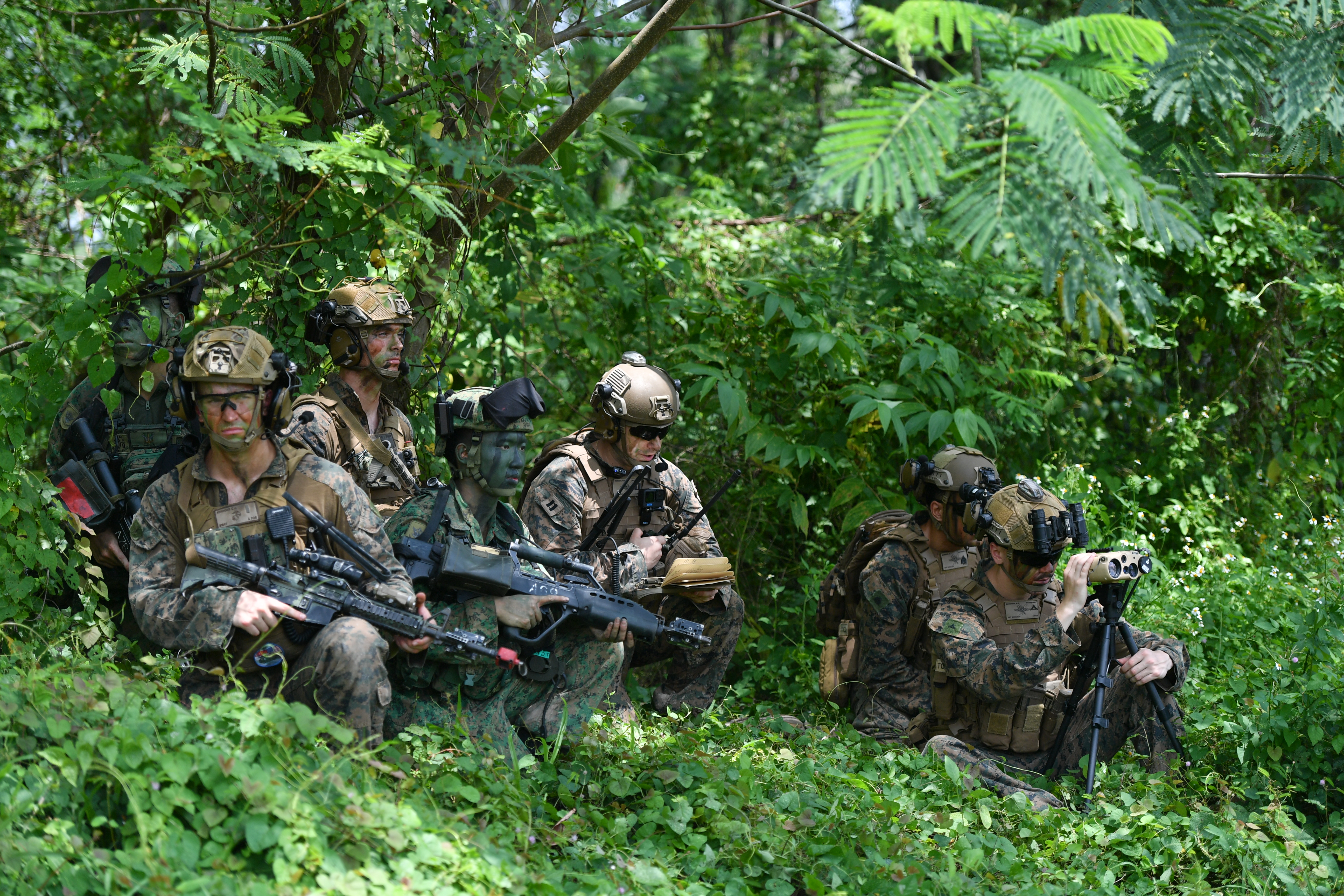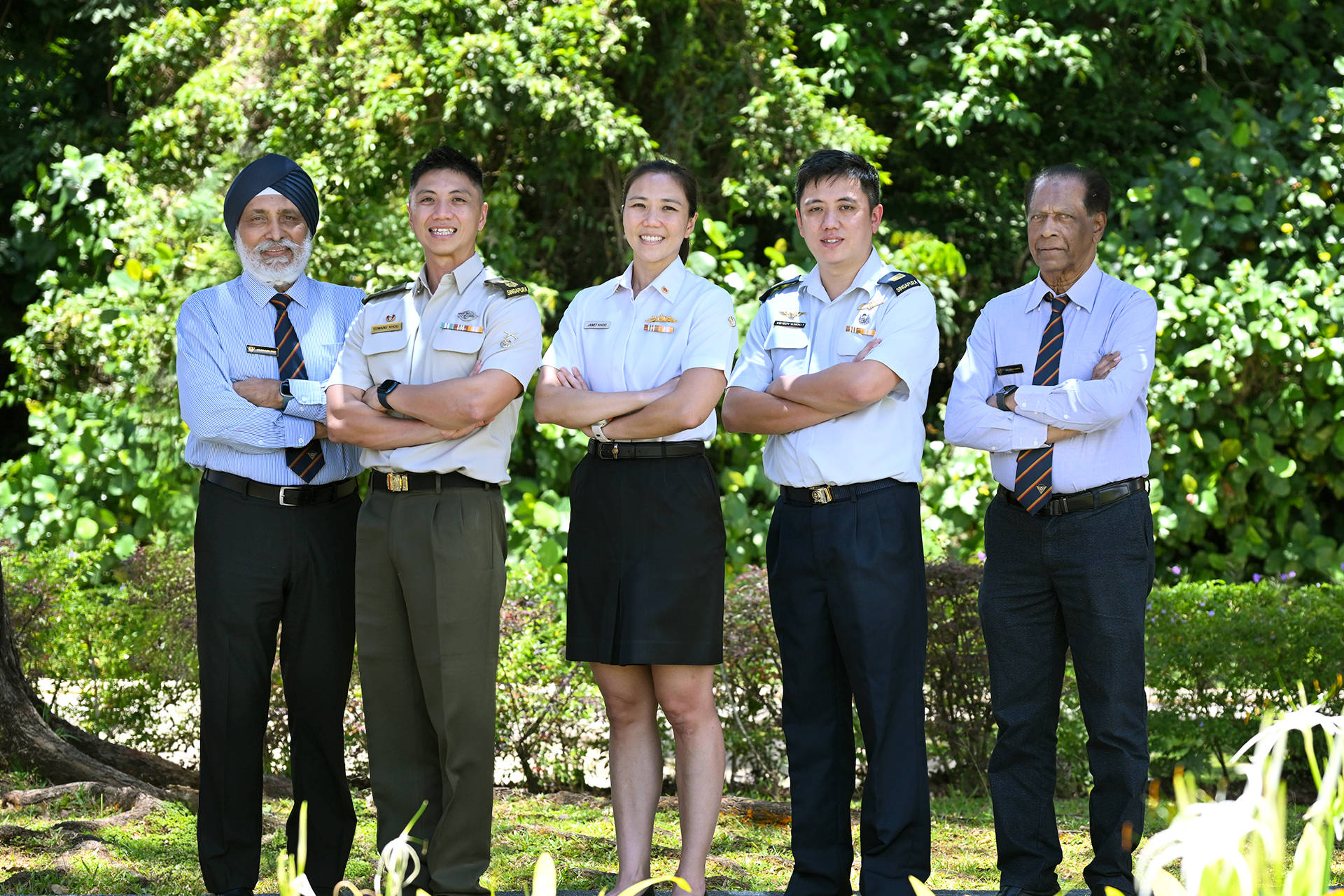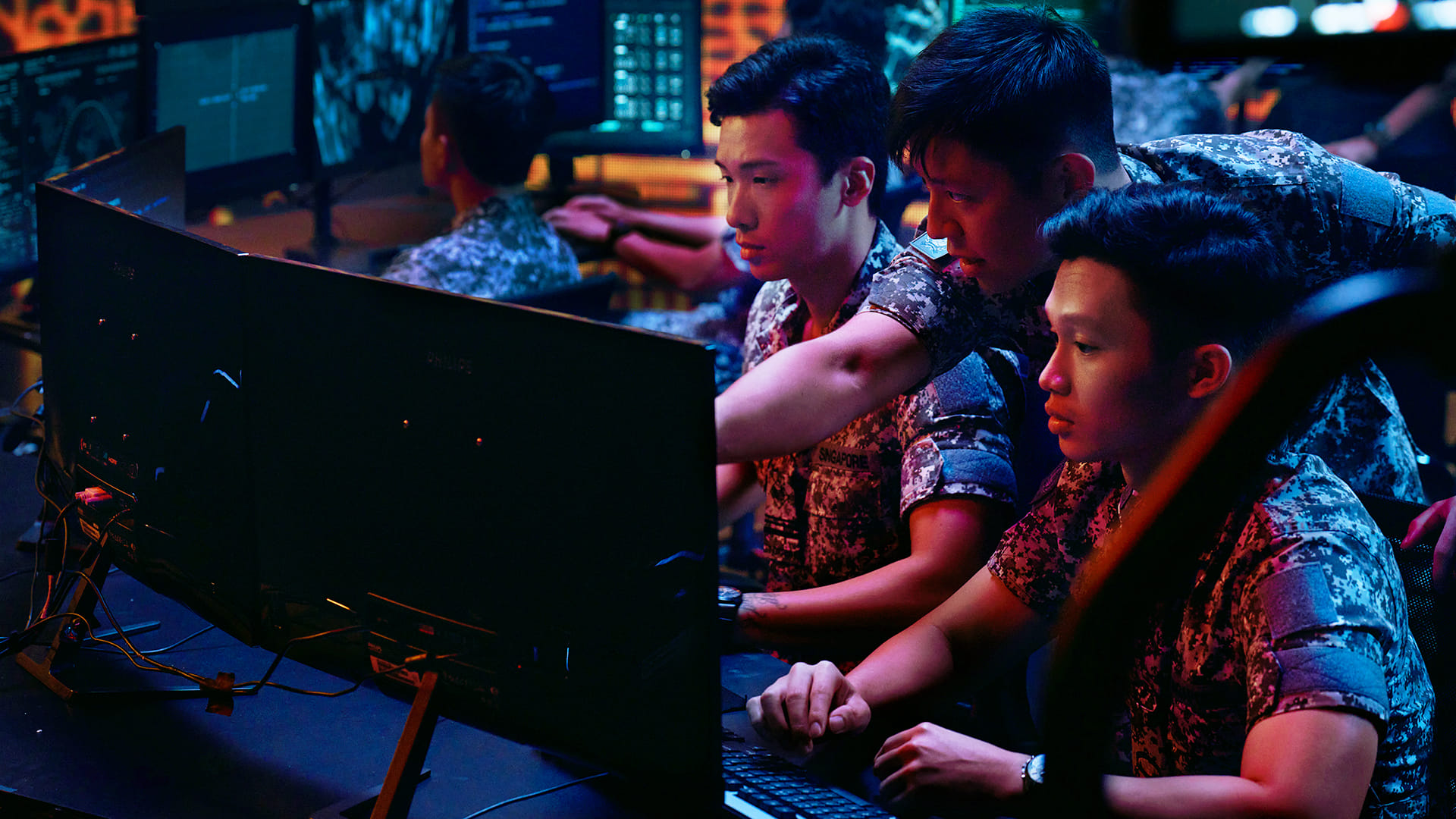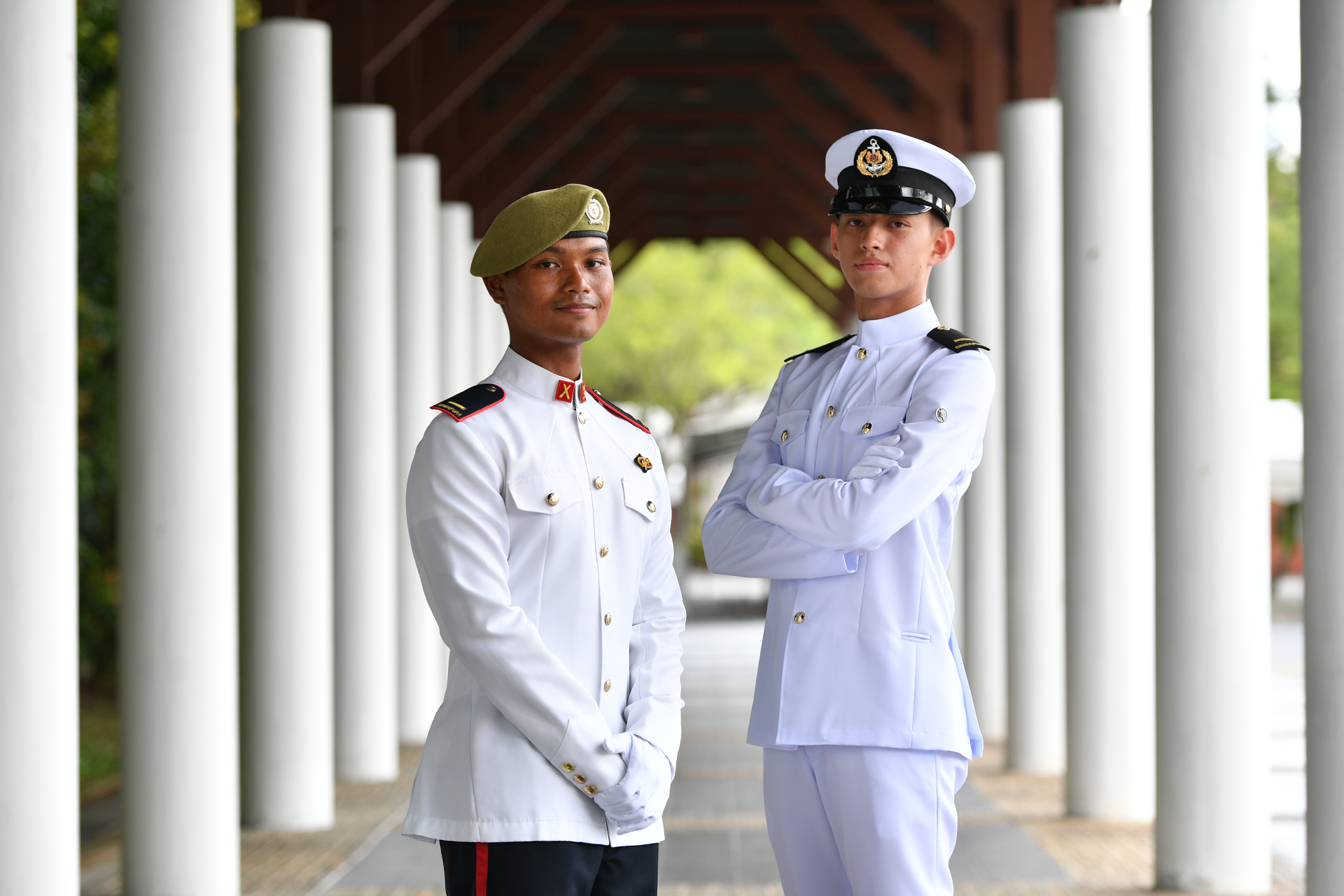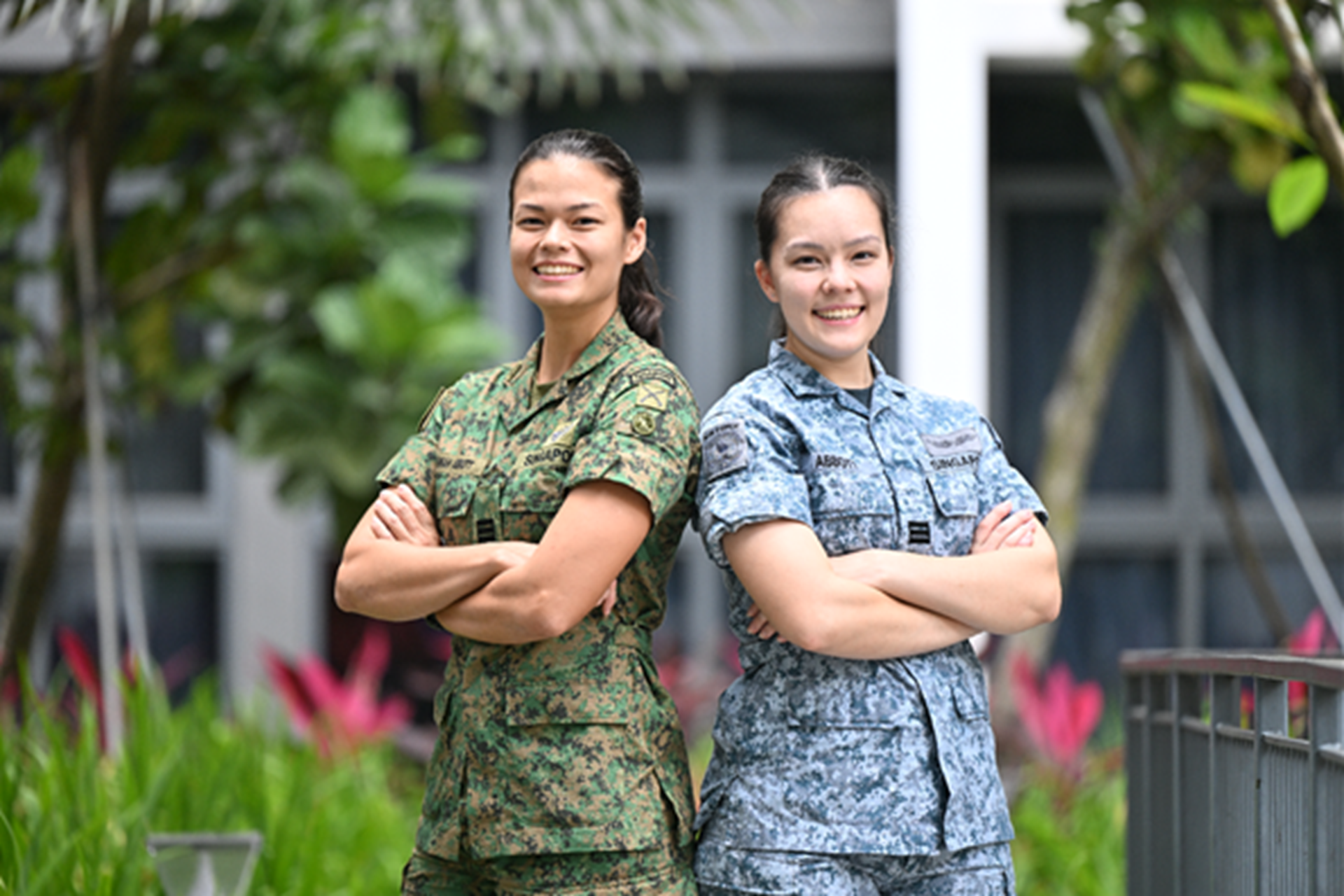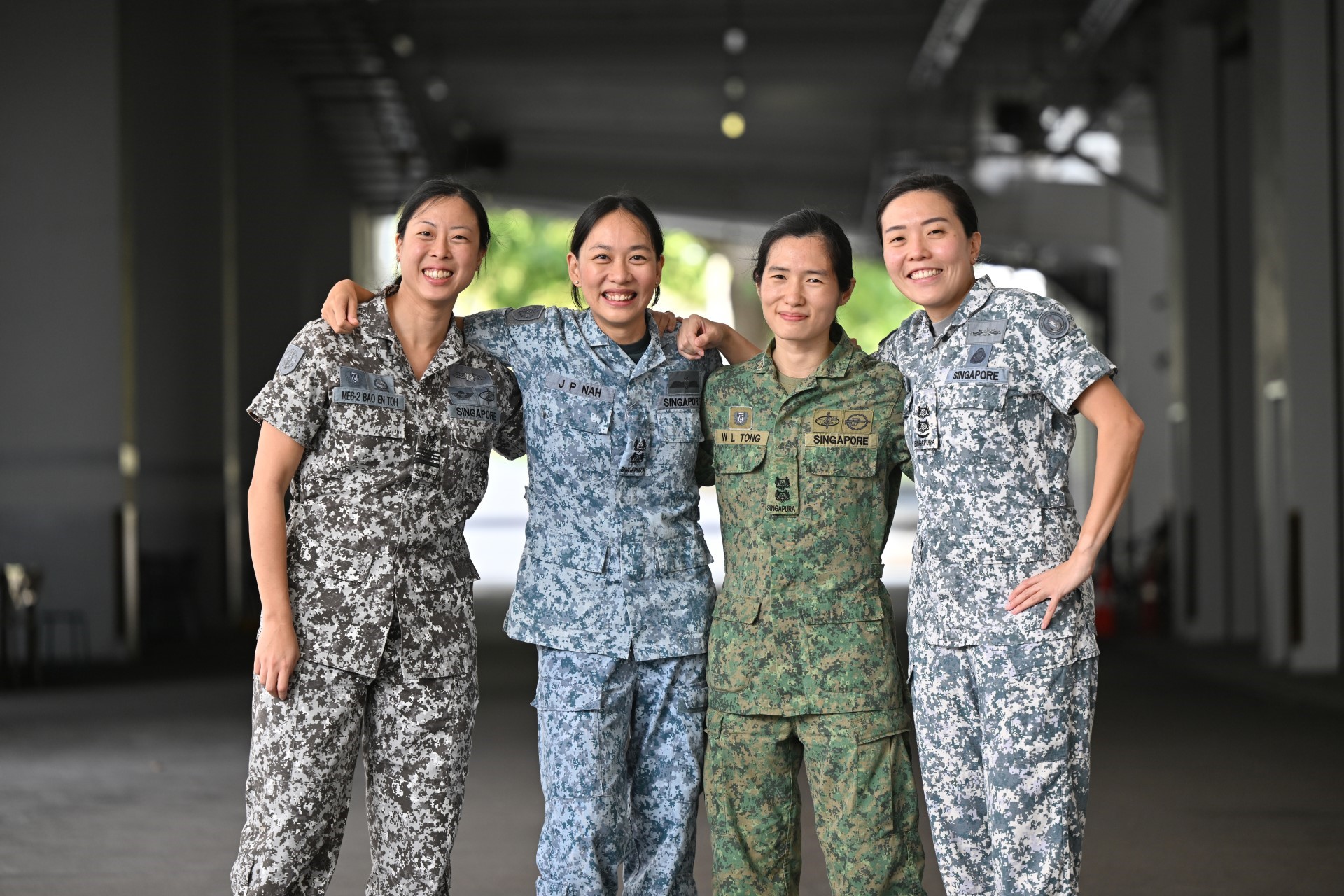DEFENDING A BORDERLESS FRONTIER
PHOTO // PIONEER Photographers
Defending a borderless frontier
Story Teo Jing Ting | Photos PIONEER photographers
Amid continuing terror threats, the Ministry of Defence (MINDEF) and the Singapore Armed Forces (SAF) are arming themselves for the latest battlefield -- cyberspace.
On 22 Mar, British citizen Khalid Masood drove his car into pedestrians along Westminster Bridge in London, before fatally stabbing a police officer. Four people were killed and about 50 were injured.
In his Facebook post, Minister for Defence Dr Ng Eng Hen described the attack as "another tragic violent chapter in our troubled world" and urged Singaporeans to "come together -- with vigilance, hope and effort, to protect ourselves and each other."
Back home, the threat of terrorism still looms large and this was one of the concerns addressed at the MINDEF workplan seminar on 27 Mar. The annual seminar is a platform for senior MINDEF and SAF leadership to discuss challenges and set the direction for the year ahead.
Dr Ng noted that the SAF had stepped up its counter-terrorist and peacetime contingency operations over the past year, and demonstrated its capabilities through several exercises such as a multi-agency counter-terrorism exercise held last October that involved more than 3,200 personnel.
On the digital front line
Apart from building up counter-terrorism capabilities, he highlighted that the SAF will be strengthening its ability to protect the new cyber battlefront by setting up a new cyber command this year. This was announced by Dr Ng at the Committee of Supply debate in March.
Called the Defence Cyber Organisation (DCO), it will oversee policies, train cyber units to monitor and defend the SAF's networks 24/7 from threats, as well as assess vulnerabilities, detect attempted intrusions and breaches in the system.
Chief of Defence Force Lieutenant-General (LG) Perry Lim, who also spoke at the seminar, shared more about plans to raise a corps of cyber defenders. These include introducing a new cyber defence vocation, and hand-picking Full-time National Servicemen (NSFs) to join the team.
"Unlike land or sea borders, the cyber front is borderless and your enemies can come from anywhere or nowhere." - Dr Ng
Man & machine
As Singapore's supply of national servicemen is expected to fall by a third in the next decade, robotics and artificial intelligence (AI) will play a huge role in the near future. They will automate processes such as combat, combat support and maintenance.
Work in this area has already begun. For instance, the Republic of Singapore Navy is working on using autonomous Unmanned Surface Vessels for maritime surveillance and naval patrol missions. At the same time, the Army is looking into incorporating unmanned vehicles into base defence operations.
LG Lim explained that the beauty of using robotics and AI lies in their ability to perform mundane and risky jobs, and unlock new operating concepts for the SAF. With AI's advanced speech and image processing algorithms, intelligence exploitation can also be accelerated.
He added that the SAF was exploring a setup to focus on developing an SAF robotics roadmap and creating an ecosystem to enable and support the use of robotics.
Maximising training
Besides the inherent need to upgrade its technology, training remains a critical focus for the SAF, said Dr Ng.
The upcoming SAFTI City is an example of how the SAF is maximising the potential of its training areas and adding greater realism into training. Spanning 88 hectares, the area comprises two sectors of extensive road networks and more than 200 buildings.
Calling it a strategic investment, Dr Ng said that SAFTI City would take National Service (NS) training to a higher level of realism and effectiveness.
The SAF is also looking into overseas training opportunities to maintain operational readiness. The signing of a Memorandum of Understanding (MOU) on training area development in 2016 as part of the Singapore-Australia Comprehensive Strategic Partnership will allow the SAF to conduct unilateral training in Australia for 18 weeks, with 14,000 troops per year over 25 years.
Opportunities for Army training in Germany have also been expanded, and the Republic of Singapore Air Force is exploring the possibility of training in Guam.
Building strong support
Even as the SAF celebrates 50 years of NS, 2017 should also be a year to work towards strengthening the NS system, said LG Lim.
Citing the "Soldier Strong" initiative by the Army, he noted that the introduction of improved personal equipment was a good move in building a positive NS experience.
As the backbone of the SAF, national servicemen and SAF commanders have the responsibility of leading the next generation through the challenges ahead.
Dr Ng concluded: "The next generation SAF is built on strong foundations... Stay strong, do your jobs well, win the confidence and trust of Singaporeans and that will bring us strong support for the SAF for another generation."
